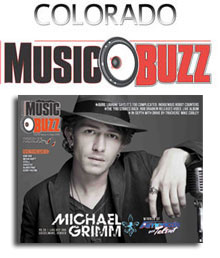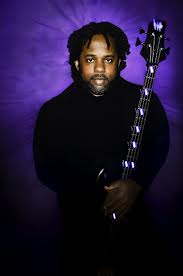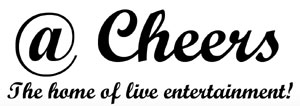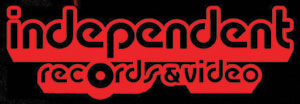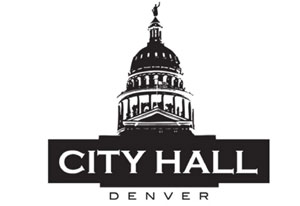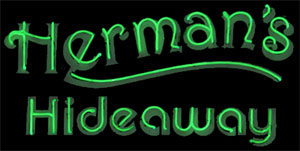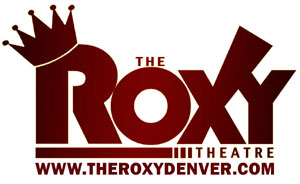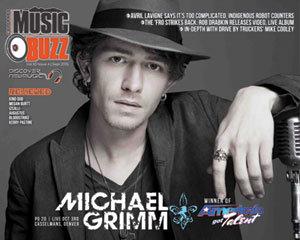An Interview With Victor Wooten and a Show You Don’t Want to Miss
by Joel Center
It’s not very often that we are given an opportunity to communicate with a truly enlightened being. Honestly, that is the most accurate term that comes to mind after considering not only the conversation you are about to read, but every show, class, and interaction I’ve ever had with the absolutely awe-striking musician, writer, and performer: Victor Wooten.
This interview was conducted over the phone on the morning of January 29, 2013.
CMB: I’d like to start by talking about the classes you are touring to teach at different Guitar Centers across the country.
VW: Well, this year marks the first time that Guitar Center is carrying a product that I use that is made by Hartke, and its amplifiers and speakers. They’re very popular in Guitar Center, so I’m doing a lot of workshops at Guitar Center.
CMB: So what do these workshops normally look like?
VW: The format is that I normally start off by playing a little bit, just a little, to make people happy, and give them an idea of what I do. It also grabs people’s attention right away. Then I do a lot of talking and answering questions about music and my process, and other people’s process, of playing and understanding music. It’s a chance for us to get into each other’s head and mindset, how we do what we do; because like it or not, good or bad, I’m one of the musicians who is kind of at the top of the field right now. And what that means is not that I’m the best, but that I’m doing what a lot of people who come to the clinic would love to be doing. I travel the world making people happy with music, and I get paid to do it. So rather than people coming and sitting and listening to me play, it would make more sense to really figure out how they can get to the same place that I am. Since I’m usually doing a concert in the same city, if they want to hear me play they can come to the concert. But what they won’t get at the concert is the opportunity to ask questions, and actually talk to each other and grow in that way.
CMB: Can you talk to me a bit about your creative process?
VW: I can sum it up really quickly. It’s just like we talk. The way you learn to talk and speak English, that’s the way I learned to speak music. I was a baby in a family of musicians. Not only did I hear it a lot, but I was allowed to participate. Even when a baby can’t speak English, they’re still allowed to communicate. And believe it or not, because their expression is so powerful and so true, as parents we learn to understand the babies even though they’re not speaking English. We learn to understand them, and there’s a lot about that process of learning to talk that allows us to learn to speak really quickly. By the age of two or three, we’re speaking very clear, complete sentences. But to find the musician that can play at two or three is viewed as a miracle or a protégé. But if the process is the same, you’ll get the same results, and that’s the way it was in my family.
CMB: I’d like to talk a bit about what you think of the music industry as far as how it’s evolved, where it’s at now, and where you think it’s going in the future.
VW: The music industry is making a big change, as it does every generation. It’s at a place where I don’t know where it’s gonna end up. Well, it’ll never end, but I don’t know what’s next. For a lot of us older musicians who have been in the record industry for many years, it can be viewed as a scary place because often change is viewed as something fearful. I’m trying not to be in that scary place, but in that open-minded place to ride the wave of where it’s taking us. One of the scary things we have to figure out is that a lot of us are in the record-selling business, and for the most part people don’t want to buy records anymore. They want their music free. They want to download it for free or hear it on Spotify or other places like that for free, or they’ll get it from their friends, or they’ll get a record and they’ll just post the whole thing to YouTube so everyone else can have it. So, as a person in the record industry, I can either complain heavily about it, or figure out how I’m gonna exist inside of this new model. I’m basically trying to figure it out, because I don’t think this model’s going anywhere. But the fact that people will pay more for a few-second ringtone than they’ll pay for a full song on iTunes, it lets you know that people will purchase things, you just have to find out what they want.
CMB: Tell me about the Wooten Woods camps and how they’ve affected the music community.
VW: These are camps that we’ve been running for the past thirteen years. Now Wooten Woods is our own location. It’s a 150-acre campsite/retreat center that we’ve built with the help of our past campers. Our camps have become non-profit under the name Victor Wooten’s Center for Music and Nature. We run camps now for every instrument, including vocals, of course. They used to only be for bass players for at least the first eight years. Now they’re for any instrument, and you can actually help me spread the word that anyone can come, it doesn’t have to be a bass player.
They can go to my website, www.VictorWooten.com, and click on camps – that’s probably the easiest way to get to the camp’s site. Wooten Woods is also a location that is rentable. We’ve had a couple people get married there, we’ve had martial arts groups, boy scout groups, just all sorts of groups renting the place for different events. But I will say that our camps are… different. We have a nature element because I understand that to become natural at anything, we need to include nature. That is the fastest way. We all want to be natural at whatever we do, of course, so not only is there a musical staff, but a nature staff also. When people come see us, I would say to prepare for a different experience.
CMB: What sort of nature aspects do you add?
VW: We have a staff of people that deal with a lot of things, but a lot about who you are. In other words, a lot of music curriculums teach the academic side of music. The techniques, the theory, the notes…. But when people hear you play, more than hearing that stuff, they want to hear you express. When I hear you talk, I’m not thinking about your theory or the technicality of how you talk. I want to hear what it is you have to say. What is your story? Are you natural? Do you have anything interesting to say? What experiences have you had? So the nature staff helps build that. They help you hear better, feel better, and use your other senses better and help you have other experiences that you can bring back to your music and talk about.
A lot of classrooms – and I’m not saying one is better than the other, but I’m just showing differences – a lot of classrooms will have you sitting in a room practicing all the time. Where, if you think about learning to talk, you didn’t learn it that way. You didn’t learn in a room by yourself practicing. Even in the classroom, your English teacher doesn’t give you a word and say, “Now go practice it.” She teaches you a word and says, “Now go use it.” So the nature staff not only addresses those issues, but they help you use your whole being to play music. Not just your ears, not just your fingers, but what does your body feel? Your listeners want to feel something, so you should feel it too. We don’t listen to our favorite musicians like B.B. King, Stevie Wonder, Ray Charles, Elvis, James Brown, we don’t listen to them because they have incredible technique, but because they know a lot of theory. It’s like we feel their emotions, and we understand the story that they tell. And so we have a staff of people that help you not only realize that, but approach it and develop those other skills so that you can tell that story a little better.
CMB: So when is the next camp?
VW: The first one for this year will be in April. We’ll have a gathering before that, where our past students and friends will come, and we’ll prepare Wooten Woods for the oncoming season. We like to do that every year, it’s a fun gathering. But the first camp will be in April and we’ll go all the way through October.
CMB: You’ve had enormous success as a musician, writer, and all-around performer. What are some of the biggest challenges and hurdles that you’ve had to go through along the way?
VW: Well, I mentioned one of them; being in the record business and trying to sell records to a populace that doesn’t want to buy them is a challenge. I’ve actually become my own record label with Vix Records. I’m putting out my own stuff now – my records are on my own label… so that’s a challenge. Being recognized as more than just the bass player for Bela Fleck and the Flecktones, even though I love that role, is a challenge. Another challenge is trying to work through a recession, not only as a country but as a world. We’re at a place where people are watching their pennies. Though those people are going to concerts, less people are buying records… so that’s a challenge. But challenges make the world interesting and fun.
CMB: Is there anything else you’d like to discuss and spread the word about?
VW: Well, people can always find out on my website, www.VictorWooten.com, what I’m up to, my latest products, thoughts… if they want to buy CDs, books, merchandise, things like that, they can do that there. But that’s always a good place for people to keep up with me and know what’s going on, so I urge people to just keep checking in there frequently.
Victor Wooten will be playing Cervantes on February 9, 2013.
Category: Don't Miss This
